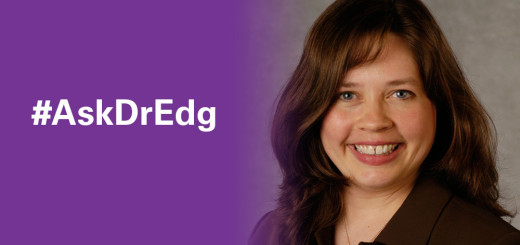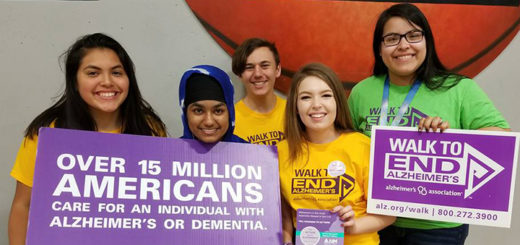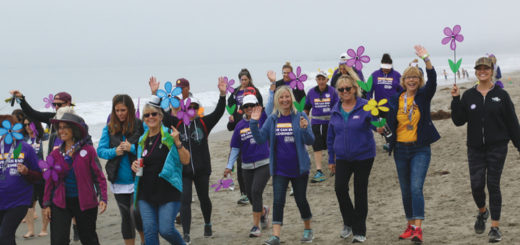UCSF researcher shares two key changes for a better night’s sleep
Part two of our sleep series. Part one was released last week and is about things that will inhibit sleep, It can be found here.
June is Alzheimer’s and Brain Awareness Month and one of the top 10 things you can do for brain health is to make sure you’re getting enough sleep. We continue our conversation with sleep specialist Dr. Ashley Mason, Assistant Professor of Psychiatry and core faculty at the UCSF Osher Center for Integrative Medicine, to share the two biggest things you can change to improve your sleep quality. She also includes some tips for those living with Alzheimer’s and their caregivers.
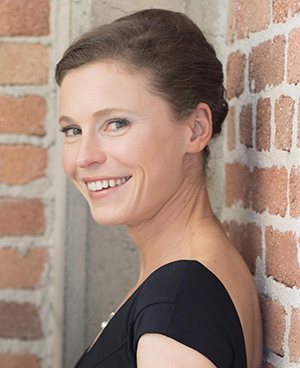
A career in sleep
As mentioned in part one, Dr. Mason received her PhD from the University of Arizona and eventually came to work at the UCSF Osher Center for Integrative Medicine. She studied under the late Dr. Richard (Dick) Bootzin who invented the treatment for Cognitive Behavioral Therapy for Insomnia, which is considered the gold standard behavioral treatment for insomnia.
Dr. Mason currently runs a sleep group at the UCSF Osher Center where she provides cognitive behavioral therapy for insomnia treatment. This group combines individual intakes with group lessons and individual follow ups. Her patients range in age from 20 to 80s.
Benefits of sleep
According to Dr. Maria Carillo, PhD, Alzheimer’s Association chief science officer, “Research has shown us that not getting enough sleep because of insomnia or sleep apnea may result in problems with memory and thinking and increase the risk for Alzheimer’s-related brain changes.”
Dr. Mason agrees, “There are so many benefits to sleep. It’s a 24 hour a day problem, not just a nighttime problem. When you don’t sleep your metabolism suffers, your risk for diabetes goes up, things are more difficult than they should be, we exercise less, people and situations can upset us more easily, and our emotional and cognitive bandwidths are smaller. Sleep will affect absolutely everything in your life, there is no getting away from it.”
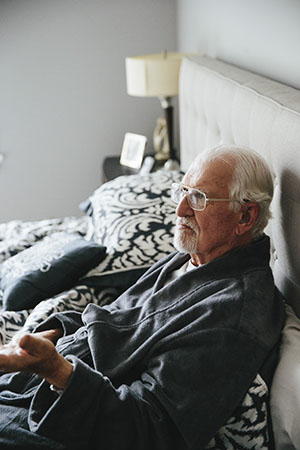
An overview on sleep hygiene
Sleep hygiene involves behaviors that promote good sleep, such as keeping a cool, dark environment and not eating close to bedtime. You can find a complete list of suggestions on sleep hygiene on the UCSF Sleep Disorders Center website.
Dr. Mason recommends every sleeper have an eye mask, ear plugs, and one or more cotton blankets. “These things are a great way to go if you travel or sleep in different places,” said Dr. Mason. “Having a routine that you can take with you wherever you go that doesn’t depend on the room you’re in is really helpful.”
Despite good sleep hygiene, you can still fall into the binge-bust pattern of sleep. “A person will have one night of bad sleep and think they should sleep in tomorrow to make up for it,” said Dr. Mason. “However, that perpetuates a bad night of sleep the next night which is going to perpetuate another day of sleeping in.
“Sleep hygiene is great but perhaps surprisingly, it’s not the most important thing when it comes to getting good sleep. What’s important is a consistent wake-time and stimulus control.” These two techniques might be thought of as part of sleep hygiene, but they are important to focus on, on their own.
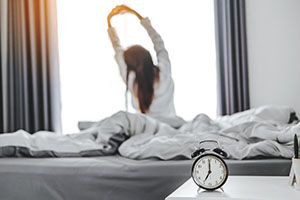
A consistent wake-time
Picking a specific time to wake up every day creates an anchor for your body to hold on to, helping it create a better sleep pattern. “What we know is that, in the long term, being consistent at what time you wake up is going to serve you well,” said Dr. Mason. “20-30% of my patients see an extreme benefit in just seven days of treatment, all because they wake up at the same time every day. Yes, including weekends.
“Even if you slept poorly the night before, if your normal wake up time is at 8 a.m., then you should wake up at that time. Odds are the next night you’ll probably sleep better because you didn’t oversleep.”
Going to bed when you’re tired
Another factor that will play into good sleep is the time you go to bed. It’s important to go to bed when you’re tired. However, if you had a bad night of sleep, you don’t want to go to bed too early the next night. “Most adults aren’t ever going to need more than nine hours of sleep at night,” said Dr. Mason. “Don’t go to bed so early that you’re going to bed 10 hours before your alarm is going to go off. We want to keep your sleep pattern in the same place every day.”
Stimulus Control
The second thing to work on is stimulus control. “The bed is reserved for two things,” said Dr. Mason. “Sleep and sex. We don’t podcast in bed. We don’t meditate in bed. We don’t fight with our spouse in bed. We definitely don’t talk about what preschool we’re going to apply for our kid to go to in San Francisco in bed.”
Dr. Mason encourages people who can’t sleep or who are in bed worrying, to get out of bed and do something pleasant that they enjoy. Read a book, watch TV (Dr. Mason says for now, working on stimulus control is more important than the issues related to screen time), or do something fun or creative that you normally wouldn’t treat yourself to during the day. Do whatever it is you need to do to reset so you can go back to bed.
“Don’t go to bed at a specific time just because you think you should go to bed,” said Dr. Mason. “Don’t go to bed until you think you can actually fall asleep — because you’re not allowed to do anything in bed except sleep.”
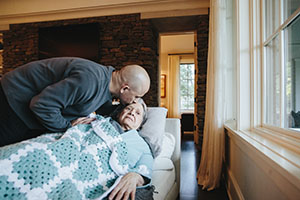
Sleep tips for those with Alzheimer’s or another dementia
People with Alzheimer’s often have problems with sleeping or may experience changes in their sleep schedule. Scientists do not completely understand why these sleep disturbances occur. It has been reported that up to 45% of people with dementia may have sleep problems.
When managing sleep changes, non-drug coping strategies should always be tried first. The Alzheimer’s Association has some coping strategies for sleep issues listed here. While Dr. Mason doesn’t typically see patients with Alzheimer’s, she recommends sticking to a consistent schedule.
“Emerging data is starting to show that the more consistency you keep in your schedule the better it is for your sleep,” said Dr. Mason. “Eating is a very important circadian regulator and can be used to help your body know what time of day it is. We want the body to be able to use its biological clock as best as it’s still able to.”
Tips for caregivers
Dr. Mason’s biggest piece of advice for caregivers, has less to do with sleep and more to do with making sure they’re able to take a break. Dr. Mason said, “Caregivers should schedule a respite plan, so they know when their breaks are coming and what they’re going to be able to do to take care of themselves.”
While everyone’s experiences and needs are different, here are some things Dr. Mason recommends you include in your plan if time and resources allow:
- Do exercise or physical movement that you enjoy
- Eat real food, not processed food products
- Social connection (with someone who isn’t the person you’re caring for)
- Maintain a healthy sleep environment and follow sleep hygiene and stimulus control
- Avoid alcohol – alcohol makes your sleep less restorative
Why Dr. Mason loves her work
“I can give someone with a sleep problem a specific treatment and, after seeing them seven times, more often than not see positive results,” shares Dr. Mason. “When you treat sleep, you’re treating a person’s entire life. There’s not much in the way of psychological interventions where someone comes back to you at a follow-up appointment and says, “˜hey, I’ve got my life back.’ There’s no larger impact I can have on my patients than helping them to improve their sleep – and therefore their lives – without drugs – in a matter of 7 or so weeks.”
For more information on the 10 Ways to love your brain got to alz.org/10ways.
For more information on Dr. Mason’s sleep center visit sealab.ucsf.edu/oshercentersleep
Learn more:





